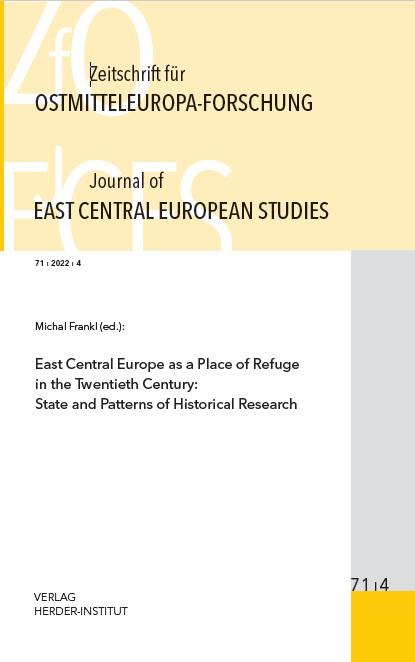East Central Europe as a Place of Refuge in the Twentieth Century: Introduction to the State and Patterns of Historical Research
East Central Europe as a Place of Refuge in the Twentieth Century: Introduction to the State and Patterns of Historical Research
Author(s): Michal FranklSubject(s): Government/Political systems, Political behavior, Politics and society, Comparative politics, Nationalism Studies, Migration Studies, Asylum, Refugees, Migration as Policy-fields
Published by: Verlag Herder-Institut
Keywords: historiography; refugees, East Central Europe;
Summary/Abstract: “It is just impossible to write about refugees in the modern world without considering the history of East Central Europe, and vice versa,” as the historian Peter Gatrell points out in a recent article. Gatrell also, however, sets the European “East” apart, identifying it with a distinct character of forced migrations: “Nothing in the modern wartime experience of Western Europe can compare with the mass deportations and population transfers that took place in Eastern Europe as well as the Balkans before, during, and after the two World Wars.” The region is therefore positioned as a space where refugee flows originate, triggering innovative responses from humanitarian and international organizations. His article poses the important question of how historians imagine, analyze, and interpret the complex subject of refugees in East Central Europe.
Journal: Zeitschrift für Ostmitteleuropa-Forschung
- Issue Year: 71/2022
- Issue No: 4
- Page Range: 473-489
- Page Count: 17
- Language: English

